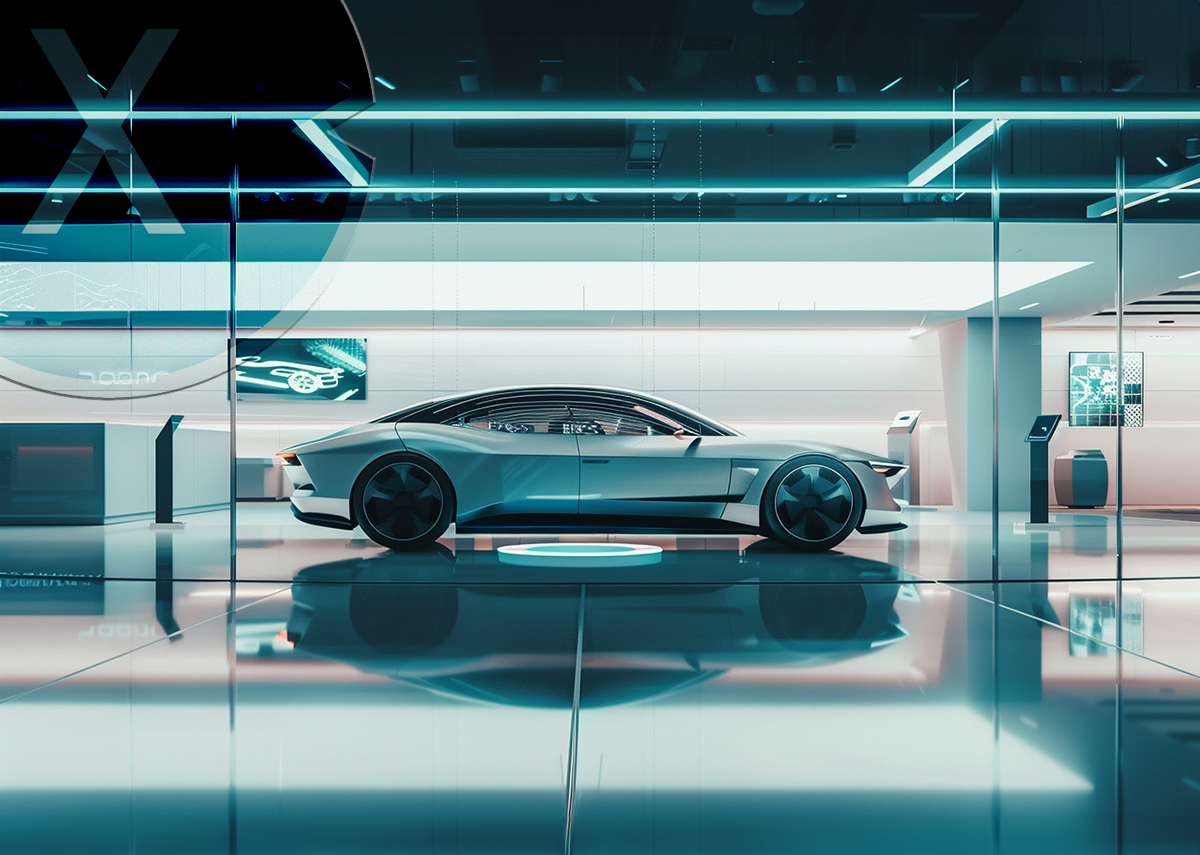🔄🔌 China's electric vehicle revolution: government support and technological breakthroughs
🚀🔄 Electromobility in China: Range extenders and battery replacement as key technologies
China has become a leading player in the field of electromobility in recent years. This development is the result of a strategic combination of government support, technological innovations and a growing awareness of environmental issues. Two of the most notable technologies China is advancing in this area are the use of range extenders and the concept of battery swapping.
🏛️ The role of government
A key factor in China's success in electromobility is the active role of the government. For years, the Chinese government has promoted the expansion of electric vehicles (EVs) through subsidies, tax incentives and investments in infrastructure. These measures have helped both production and sales of electric vehicles in China increase rapidly. The government has set ambitious targets to increase the share of EVs in new registrations and reduce dependence on fossil fuels.
🔧 Technological innovations: range extenders
One of the technologies that China has researched and developed particularly intensively is the range extender. A range extender is a small internal combustion engine or other power source used to extend the range of an electric vehicle. This is done by the range extender generating electricity to charge the battery while driving. This technology offers a practical solution to one of the biggest problems with electric vehicles: limited range.
The advantage of range extenders is that they make it possible to cover longer distances without having to rely on charging infrastructure. This is particularly important in a country as large as China, where the charging infrastructure is not yet widely developed. By using range extenders, drivers can cover longer distances while enjoying the benefits of an electric drive.
🔄 Battery replacement: An innovative solution
In addition to range extenders, China has also intensively pursued the concept of battery replacement. When changing the battery, the empty battery of an electric vehicle is replaced with a fully charged one. This process only takes a few minutes and offers a quick alternative to traditional charging. Battery replacement is being promoted in particular by companies like NIO, which have already set up a network of changing stations.
The advantage of changing batteries is its speed and convenience. While charging a battery can take several hours, changing the battery allows you to continue driving almost immediately. This is particularly attractive for drivers who travel long distances or do not have the option to charge their vehicle overnight.
⚖️ Challenges and opportunities
Despite these advances, China also faces challenges in the area of electromobility. One of the biggest challenges is the development of a comprehensive charging infrastructure. Although many charging stations have already been installed, there are still regions, particularly in rural areas, that are inadequately supplied. However, the government is working to close these gaps and improve access to charging stations.
Another problem is the recycling and disposal of batteries. As the number of electric vehicles increases, so does the amount of used batteries that need to be disposed of or recycled in an environmentally friendly manner. There is a great need for sustainable solutions and technologies for recycling.
Nevertheless, the advance of electromobility in China offers enormous opportunities. The development of new technologies creates jobs and promotes innovation in various sectors. It also helps reduce air pollution and helps the country achieve its climate goals.
🔮 Market development
With continued investment in research and development and government support, China is expected to further expand its leading position in this area. The focus will not only be on the domestic market; Chinese companies are increasingly expanding internationally and bringing their technologies to the global market.
Another trend is the integration of electric vehicles into the smart city concept. By using modern technologies such as the Internet of Things (IoT), electric vehicles can be seamlessly integrated into urban transport systems. This enables more efficient use of resources and contributes to improving the quality of life in cities.
🔗 Range extenders and the concept of battery replacement
China's lead in electric mobility is based on a combination of government support, technological innovations and a strong commitment to sustainability. The use of range extenders and the concept of battery replacement are just two examples of China's innovative strength in this area. Despite existing challenges, electromobility offers enormous opportunities for economic growth and environmental protection.
Overall, it shows that China is not only an important market for electric vehicles, but also acts as a pioneer in the development of new technologies. With a clear focus on sustainability and innovation, China is expected to continue to play a leading role in the global transition to electric mobility.
📣 Similar topics
- 🚗 China's pioneering role in electromobility: range extenders and battery replacement
- 🔋 Strong support: The government and China's electric car strategy
- 🌿 Technological progress: Range extenders as the key to improving range
- ⚡ Charged in a flash: The pioneering concept of battery replacement
- 🏞️ Infrastructure challenge: China's path to comprehensive charging coverage
- ♻️ Battery future: recycling and disposal in the electric age
- 📈 Growth opportunities: Innovations and jobs in the electromobility market
- 🌍 China's global expansion: e-mobility as an export product
- 🌐 Smart Cities: The integration of electric vehicles in urban areas
- 🚀 E-mobility potential: Economic growth and environmental protection in China
#️⃣ Hashtags: #ElectronicMobility #Innovation #TechnologicalDevelopment #EnvironmentalProtection #SmartCity
🚗⚡️🔨Now it has happened: Punitive tariffs on Chinese electric cars due to state subsidies - EU reacts to unfair competition from China
Punitive tariffs on Chinese electric cars due to state subsidies – EU reacts to unfair competition from China – Image: Xpert.Digital
The European Union recently decided to impose punitive tariffs on electric vehicles from China. This decision is the result of a comprehensive investigation by the EU Commission, which concluded that Chinese electric vehicles benefit from significant government subsidies and therefore have an unfair competitive advantage over European manufacturers. The tariffs are expected to be up to 35.3% and come into force at the beginning of November at the latest.
More about it here:
We are there for you - advice - planning - implementation - project management
☑️ Industry expert, here with his own Xpert.Digital industry hub with over 2,500 specialist articles
I would be happy to serve as your personal advisor.
You can contact me by filling out the contact form below or simply call me on +49 89 89 674 804 (Munich) .
I'm looking forward to our joint project.
Xpert.Digital - Konrad Wolfenstein
Xpert.Digital is a hub for industry with a focus on digitalization, mechanical engineering, logistics/intralogistics and photovoltaics.
With our 360° business development solution, we support well-known companies from new business to after sales.
Market intelligence, smarketing, marketing automation, content development, PR, mail campaigns, personalized social media and lead nurturing are part of our digital tools.
You can find out more at: www.xpert.digital - www.xpert.solar - www.xpert.plus


